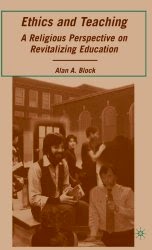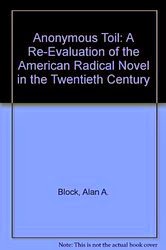
Reading Tristram
Shandy by Laurence Sterne. I had studied this 18th century novel
during graduate studies and seem to recall having written a paper discussing
the influence of Hamlet in the novel. I had a colleague at the time who, too,
had a familiarity with Tristram and
we enjoyed sharing our common interest. I do not know what has led me to pick
up this book again because it is a difficult read: 18th century
grammatical structures and vocabulary the obvious obstacles to clarity. More interesting,
however, is the narrative style. I intend not to construct another paper for
another graduate English class, but I would like to entertain some points of interest
to me. The first item to be considered is Sterne’s invention of the reader: the
narrator—Tristram Shandy himself—speaks directly to the reader who is sometimes
a woman and sometimes a man. This type of address might be a convention of 18th
century literature, but Sterne at least one motive for this direct address is
that Tristram informs his reader how to read the book! He addresses a reader’s
concerns and questions, and advises the reader what he and she might expect from
the narrative (such as it is) and offers motives for his direct address. For
example, Tristram writes, “In the beginning of the last chapter,” Tristram
writes, “I inform’d you exactly when I
was born;--but I did not inform you, how.
No; that particular was reserved entirely for a chapter by
itself;--besides, Sir, as you and I are in a manner perfect strangers to each
other, it would not have been proper to have let you into too many
circumstances relating to myself all at once.—You must have a little patience .
. . As you proceed further with me, the slight acquaintance which is now
beginning betwixt us, will grow into familiarity; and that unless one of us in
in fault, will terminate in friendship.” This invitation (and caution) not only
creates the reader but also directs him or her how the book is written and
therefore how it must be read. Tristram also chastises the reader for not
paying sufficient attention to the narrative. “How could you, Madam, be so
inattentive in reading the last chapter?” he censures. The reader’s
inattentiveness Tristram accuses, is a result of the habit of reading for plot
and not for meaning. . I wish the male-reader has not pass’d by many a one
[intellectual and moral point], as quaint and curious this one, in which the
female-reader has been detected. I wish it [his caution]may have its
effects;--and that all good people, both male and female, from her example, may
be taught to think as well as read.” If reading does not lead to thinking, then
the reading is inadequate! It is not a long step to Thoreau’s dictum that a good
book requires one to stand on her tiptoes to read it!
I have considered for a time that opening a
new book is an act of estrangement and that the reticence to read we often find
in children and adults might be due to a discomfort with entering a strange
world and meeting new people. The reader enters a world that might be somewhat
familiar but ought not to be wholly so, and the characters are, indeed,
strangers to her. We enter with caution and sometimes even suspicion. Beginning
a new book feels somewhat like jumping into the cold waters of a lake: shocking
the system. Sometimes setting out in a new book is like entering a darkened
forest; and sometimes it is like joining a party already in full session in an
unknown strange house with nothing but strangers in attendance. “Who are these
people? Where am I? Who invited me, after all? What am I doing here?” Often the
incipient reader will turn and flee.
Sterne appears to have prepared for this possibility
at least by offering the reader entrance into the book. In the very first
chapter Sterne places the reader into the book and even allows him or her to
ask directly of the narrator, “Pray, what was your father saying?” which really
asked when your father spoke what did he mean? The novel Tristram Shandy will be at the least a conversation between narrator
and reader, and the reader is early cautioned not to remain blithely passive. Throughout
the narrative Tristram tells us how the book is written and therefore, how the
book must be read. For example, chastising his female reader for inattention,
Tristram cautions, “’Tis to rebuke a vicious taste which has which has crept
into thousands besides herself,--of reading straight forwards, more in quest of
the adventure, than of the deep erudition and knowledge which a book this cast,
if read over as it should be, would infallibly impart with them.” Of course,
what he advocates is that one read not merely for plot but for meaning. Meaning
derives from reflection. And to prevent a linearity that would obviate thought,
Tristram keeps interrupting the narrative with digressions. “Digressions,
incontestably, are the sunshine;--they are the life, the soul of reading;--take
them out of this book for instance,--you might as well take the book along with
them.” What this means is that the steady (and anticipated) movement of plot
suffers continual interruption and the reader must attend carefully to her or
his reading because the reader can’t expect to know exactly what is to come
next. Of his method Tristram says, says, “I set no small store . . . that my reader has never yet been able
to guess at any thing. And in this, Sir, I am of so nice and singular a humour,
that if I thought you was able to form the last judgment or probably conjecture
to yourself, of what was to come in the next page,--I would tear it out of my
book.” What Tristram argues is that the digressions are absolutely necessary
because no occurrence can be understood outside of the context in which the
event occurs, and the digressions often offer that context.
Reading Tristram Shandy is not about plot at all—though the book begins on
the subject of Tristram’s birth, with all of the digressions it takes almost 80
pages until he is actually born! Without digressions, Tristram says, there is
no book: “they are the life, the soul of reading.” I think one delight in
reading Sterne’s novel is following the digressive narrative that finally
includes all of life that could not ever be contained by a steady, rational
progress of plot!











